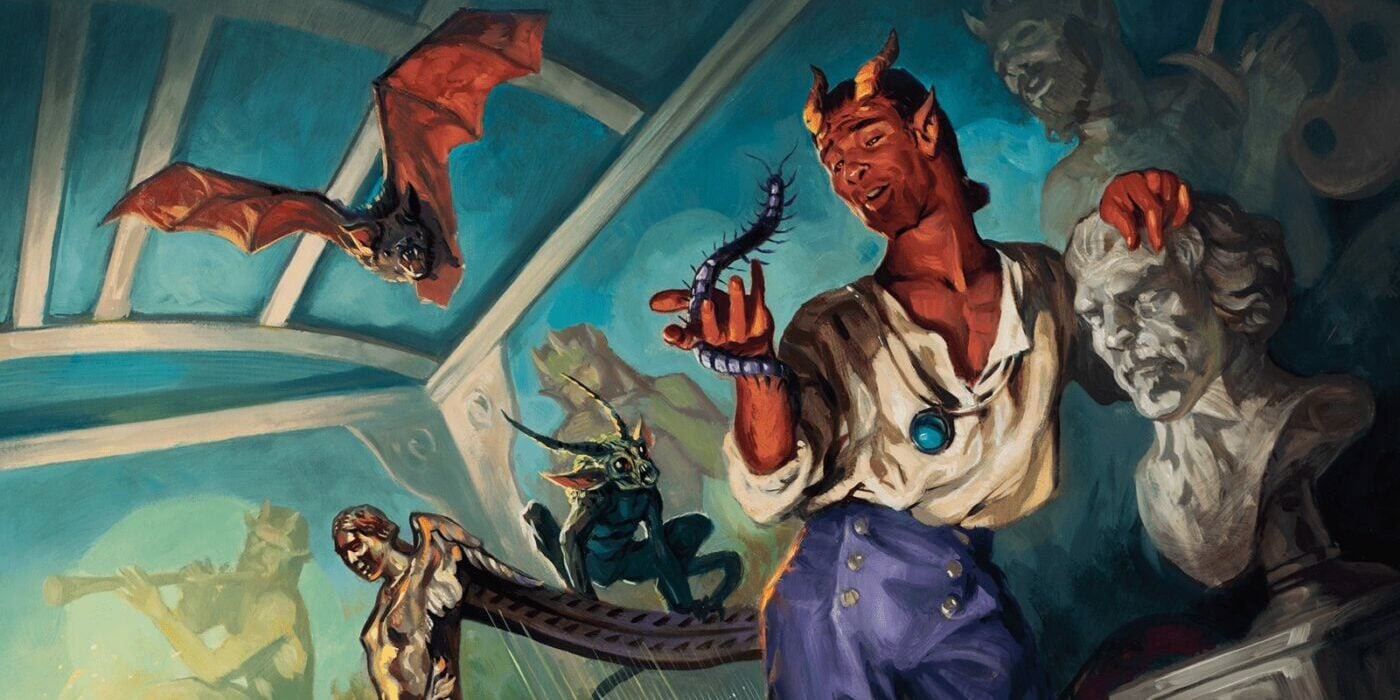D&D: Five Ways Your Character Can Make Someone Believe Anything

Need to get someone to believe the most outrageous explanation? Here are five ways to defy reason and steam a good ham.
We’ve all been there. Your D&D character told one lie too many and now they’re caught, not necessarily red-handed, but on the precipice of being found out. And they can’t just double down on what you’ve said because there’s no way anyone would believe so bold-faced a lie as claiming that the blazing inferno is just the Northern Lights, displayed at this time of year, at this time of day, in this part of the world localized entirely within their kitchen… or is there?
Of course, there is. It’s D&D and there’s magic for pretty much any of this.
Modify Memory
Let’s start with the most morally questionable one. Modify Memory allows you to reshape someone’s perceptions of reality. Does that make you like unto a god? Debatably. Will there be repercussions? Only if you get caught. And since you can rewrite a single event to reflect pretty much anything you want, you can Modify someone’s Memory into believing that they did, in fact, see the Northern Lights and enjoy an unforgettable luncheon besides.
Hallucinatory Terrain
Okay, so you don’t want to brainwash someone into believing that what you said is true. Why not settle for the next best thing? With Hallucinatory Terrain you can disguise that blazing inferno as any sort of natural terrain (within a 150-foot cube, so hopefully that inferno hasn’t blazed it like it was April 20th). But you can make a pond look like a meadow, and if you can argue with your GM, you could make flames look like the natural terrain of charged particles colliding with the atmosphere.
Suggestion
This one’s more of a gamble. Because for a Suggestion spell to work, you have to work a course of action that sounds reasonable. But if you can convince someone that believing what you tell them sounds reasonable, Suggestion causes them to pursue the course of action you magically suggest to the best of their ability.
Geas
As long as you’re magically compelling someone, you could also add in a penalty when they go against your suggested course of action. With Geas, the target takes 5d10 points of psychic damage when it acts in a manner directly counter to your instruction, and it stays that way for up to 30 days, which is plenty of time to leave a lasting impression.
Pyrotechnics
Or you could magically extinguish the fire (assuming it’s not too big), creating a dazzling display of fireworks that could blind an unprotected target who fails their saving throw, allowing you to dispose of the evidence (fire) while creating a reasonable facsimile of a dazzling light show that might be localized entirely within your kitchen.
All this despite the fact that they are obviously grilled.










